Understanding fractions Math Worksheets for Ages 5-6
27 filtered results
-
From - To
"Understanding Fractions Math Worksheets for Ages 5-6" are a perfect way to introduce your child to the concept of fractions. These engaging, colorful worksheets use fun, relatable examples to help young learners grasp the basics of fractions, such as halves and quarters. Designed by educational experts, each worksheet builds foundational math skills and boosts confidence. Ideal for kindergarteners and first graders, this collection promotes hands-on learning and practical application. Make fractions enjoyable and accessible with "Understanding Fractions Math Worksheets," ensuring your child builds a strong mathematical foundation from an early age.
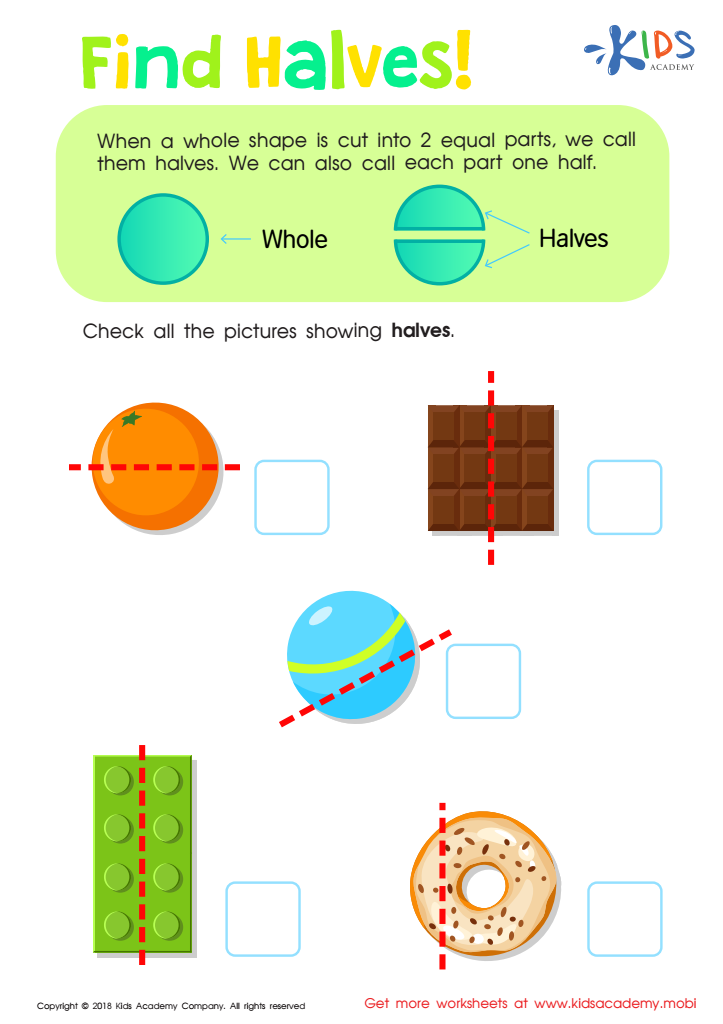

Find Halves Worksheet
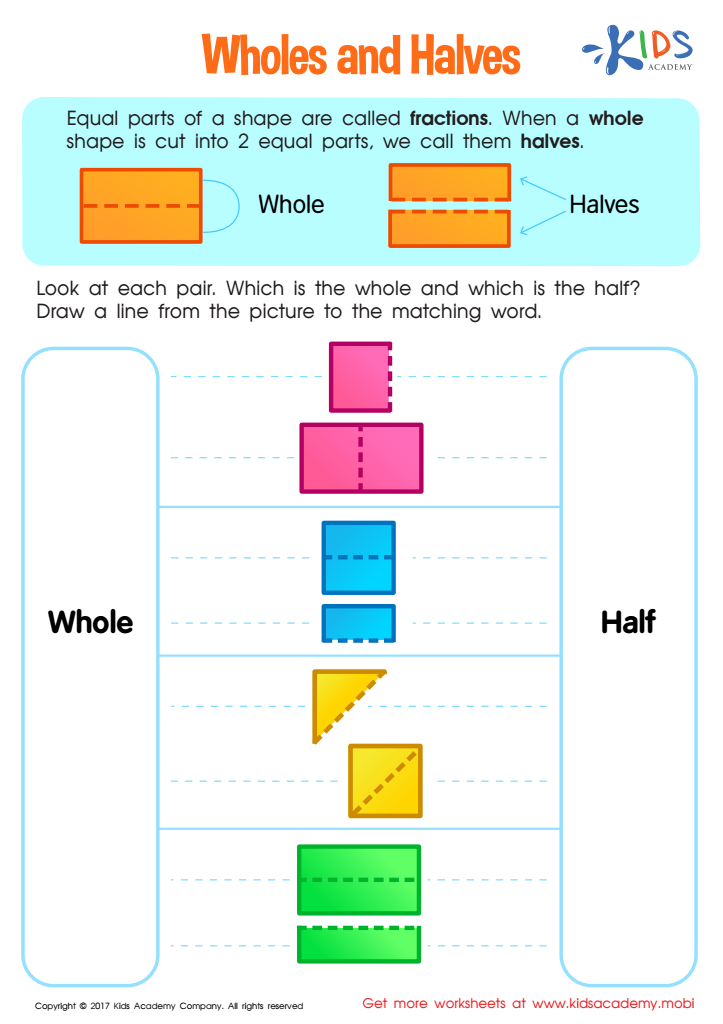

Wholes and Halves Worksheet
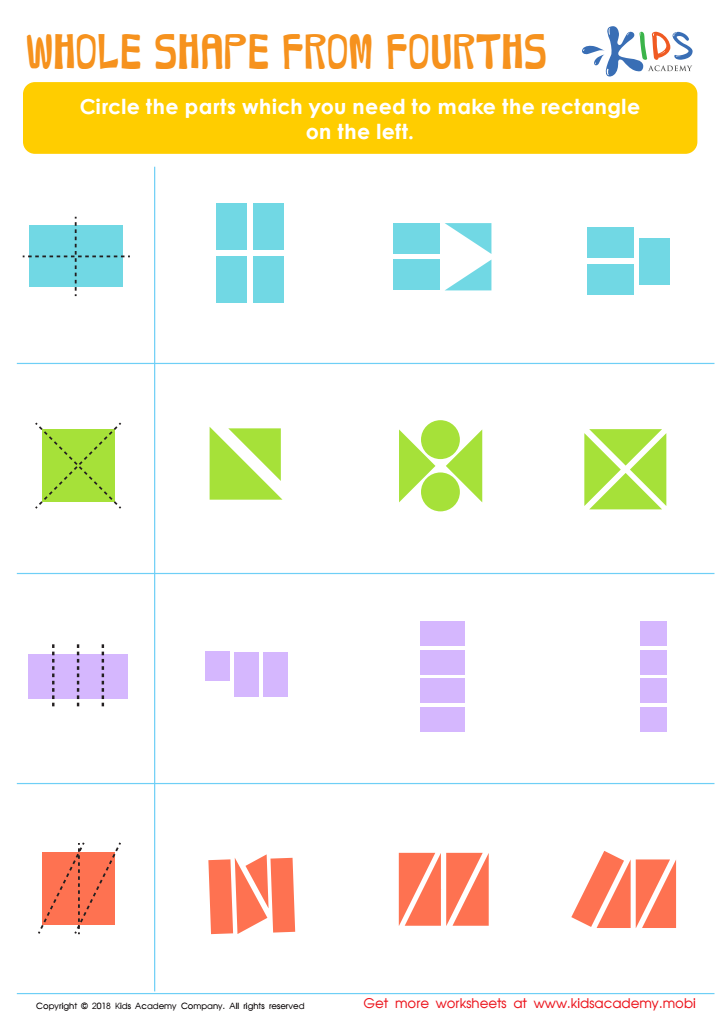

Whole Shape from Fourths Worksheet
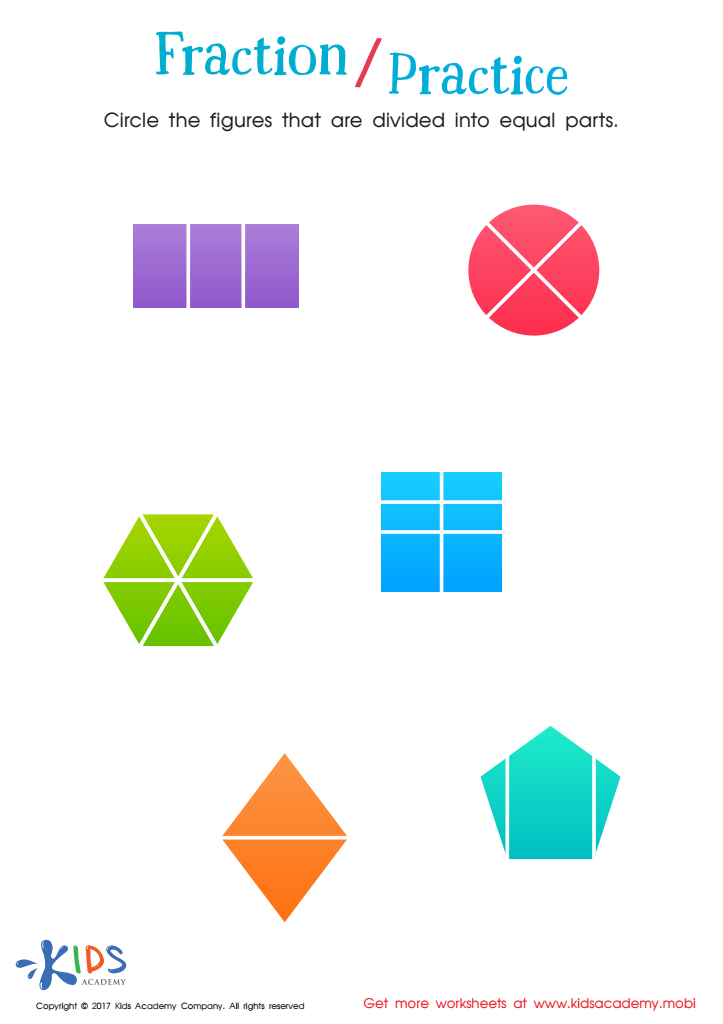

Fractions: Shapes Worksheet
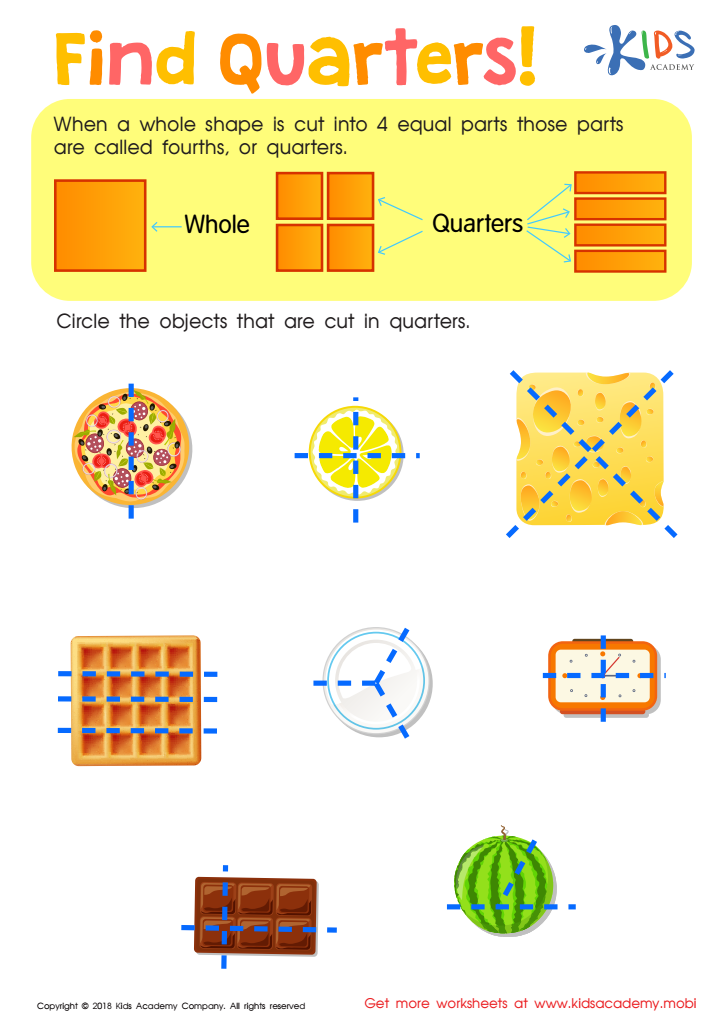

Find Quarters Worksheet
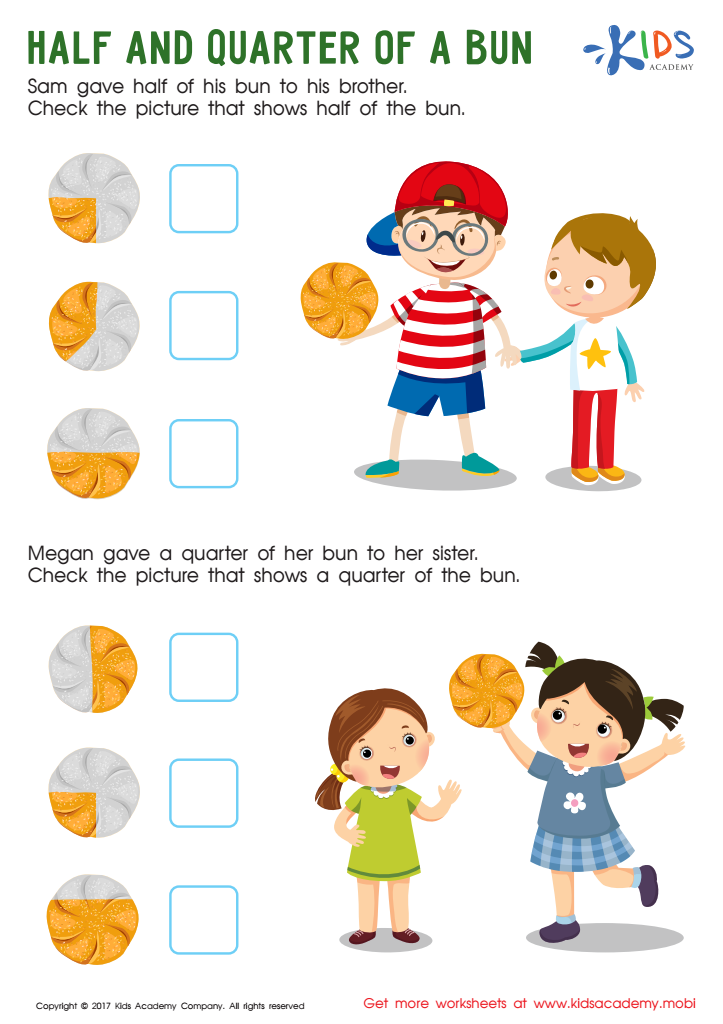

Half and Quarter of a Bun Worksheet
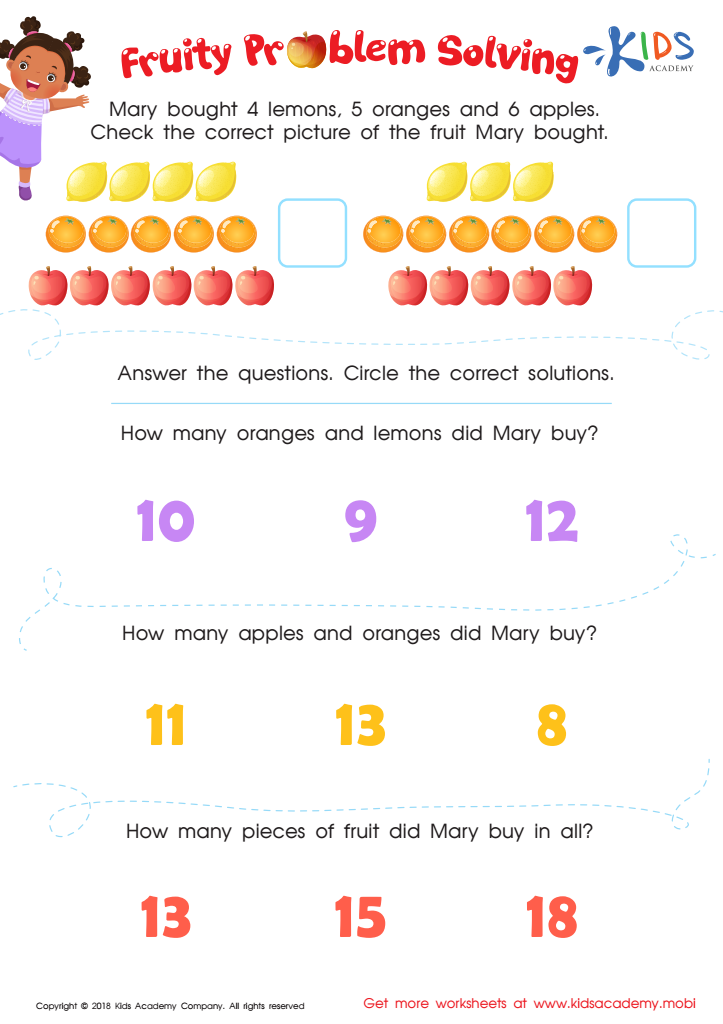

Fruity Problem Solving Worksheet
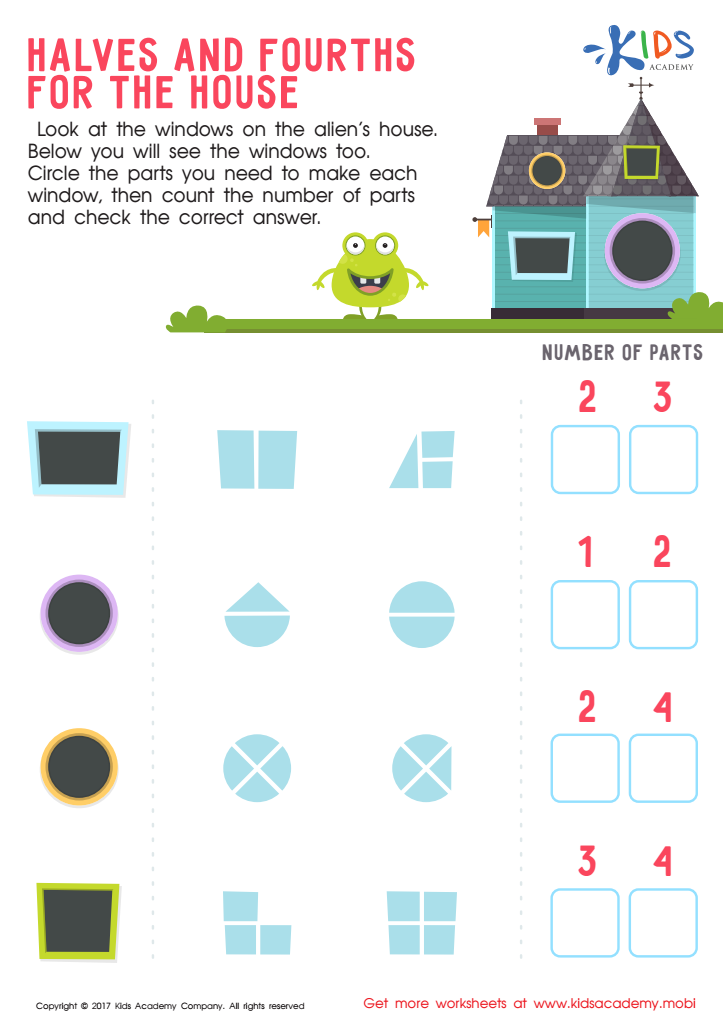

Halves and Fourths for the House Worksheet
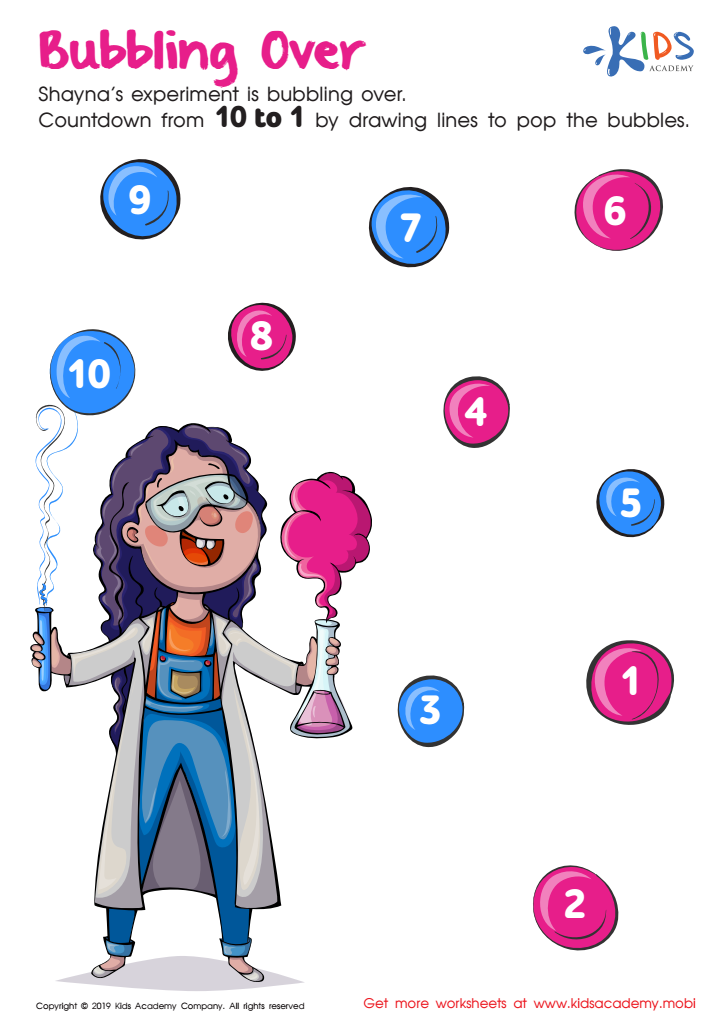

Bubbling Over Worksheet
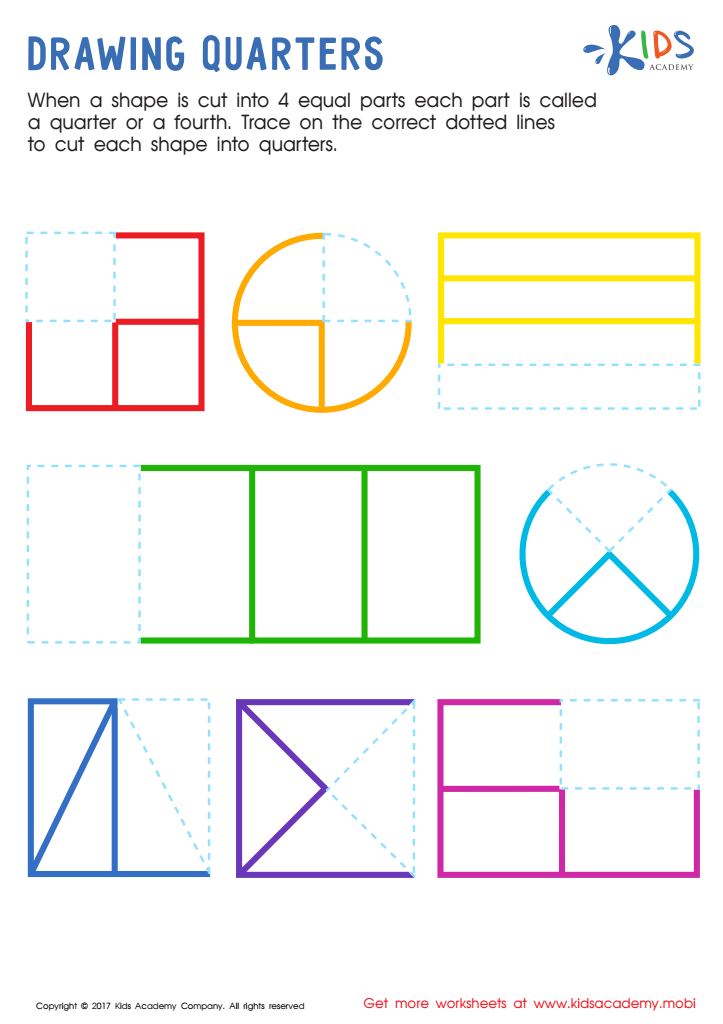

Drawing Quarters Worksheet
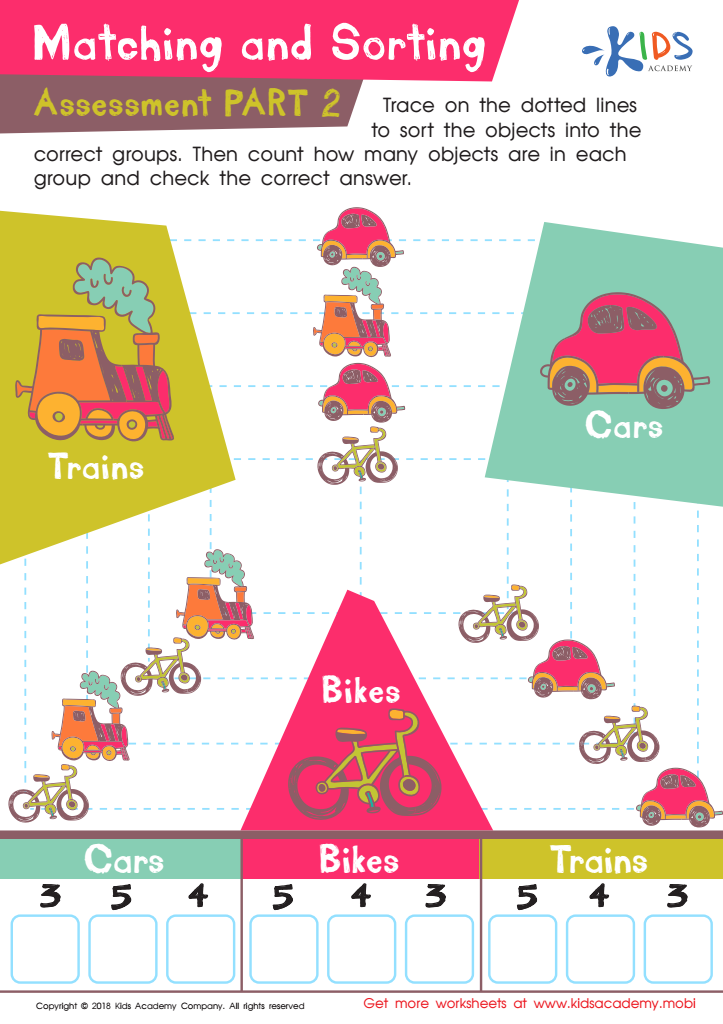

Matching and Sorting for Kindergarten: Assessment 2 Worksheet
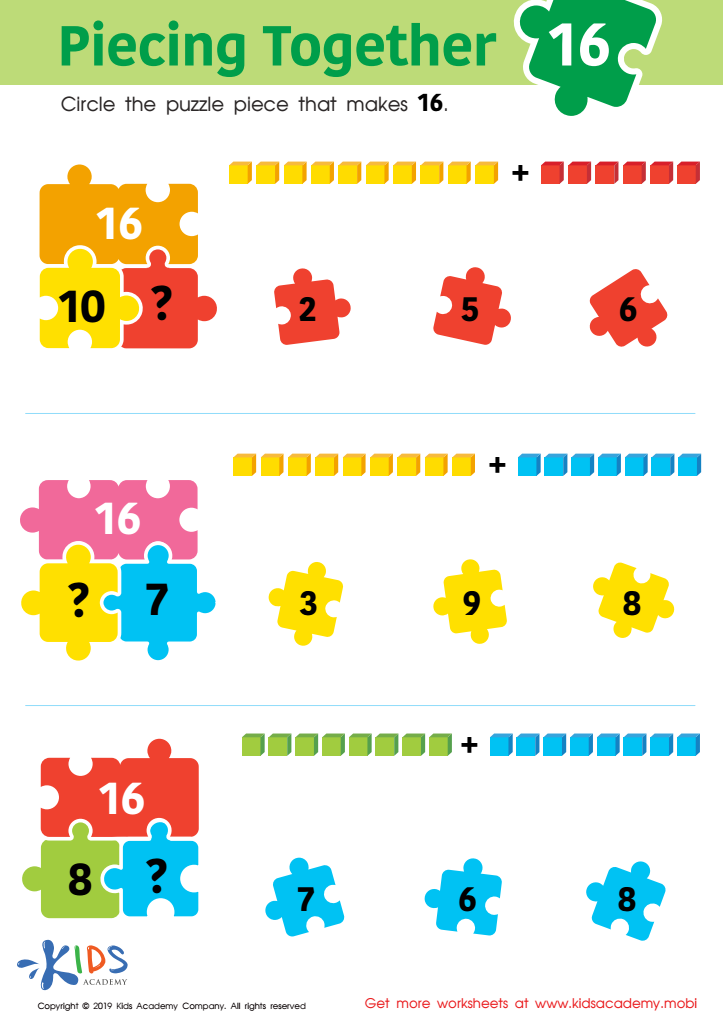

Piecing Together 16 Worksheet
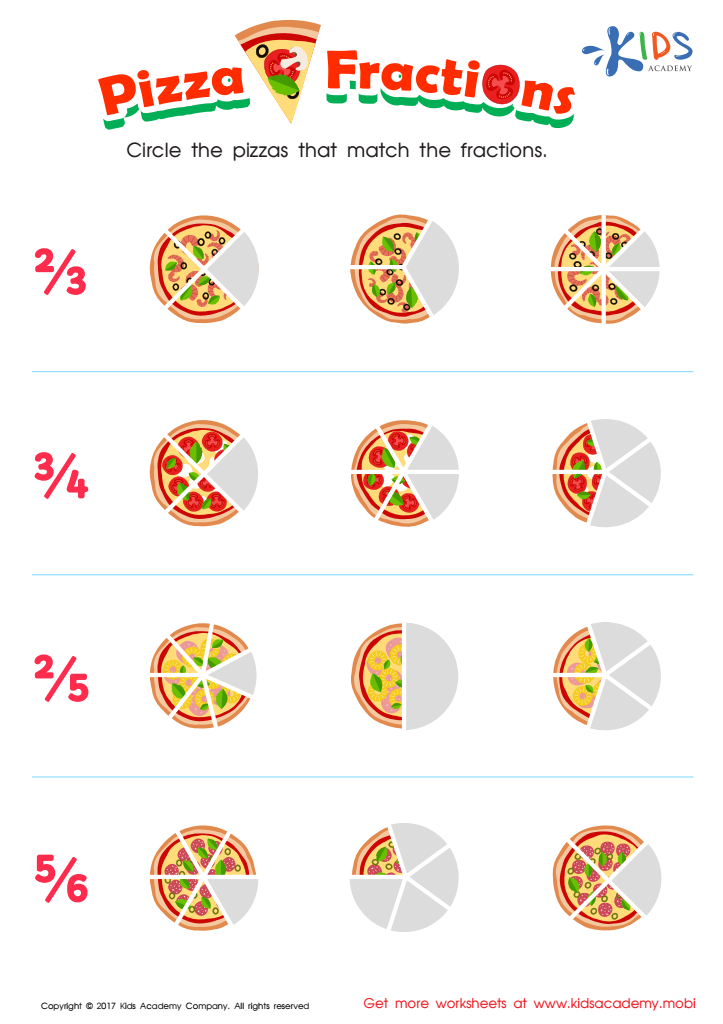

Fractions: Pizza Printable
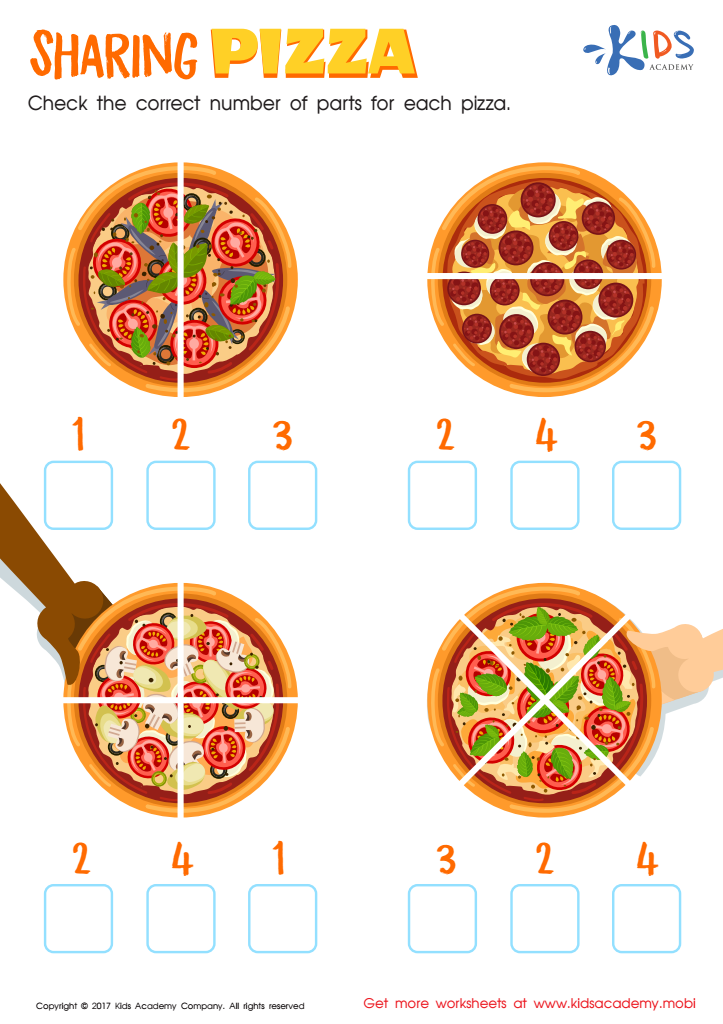

Sharing Pizza Worksheet
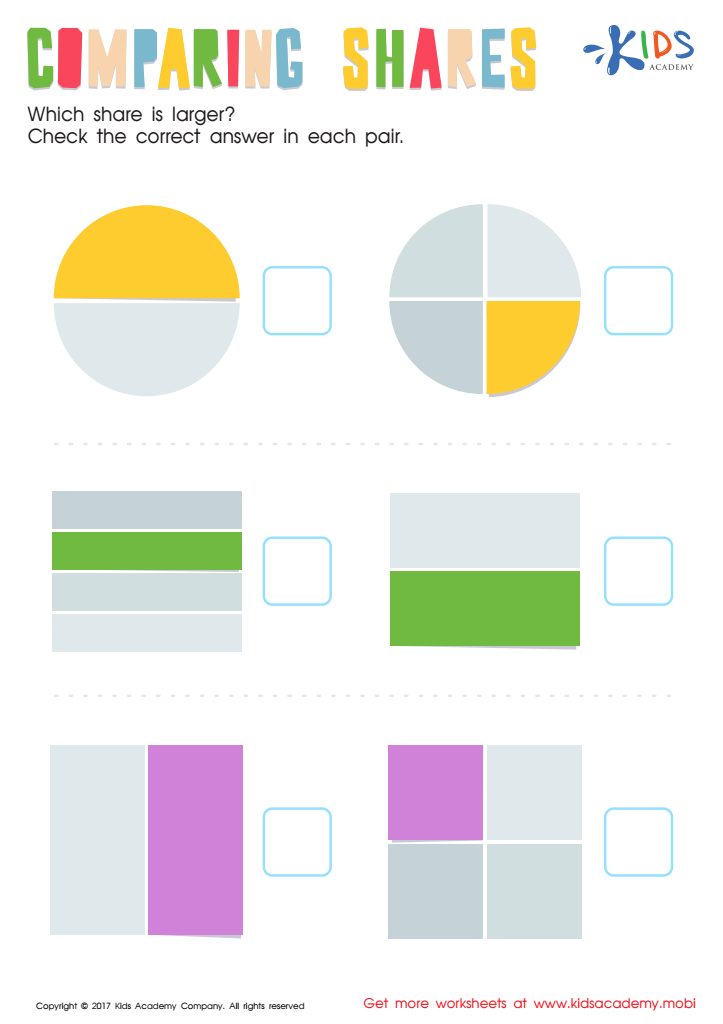

Comparing Shares Worksheet
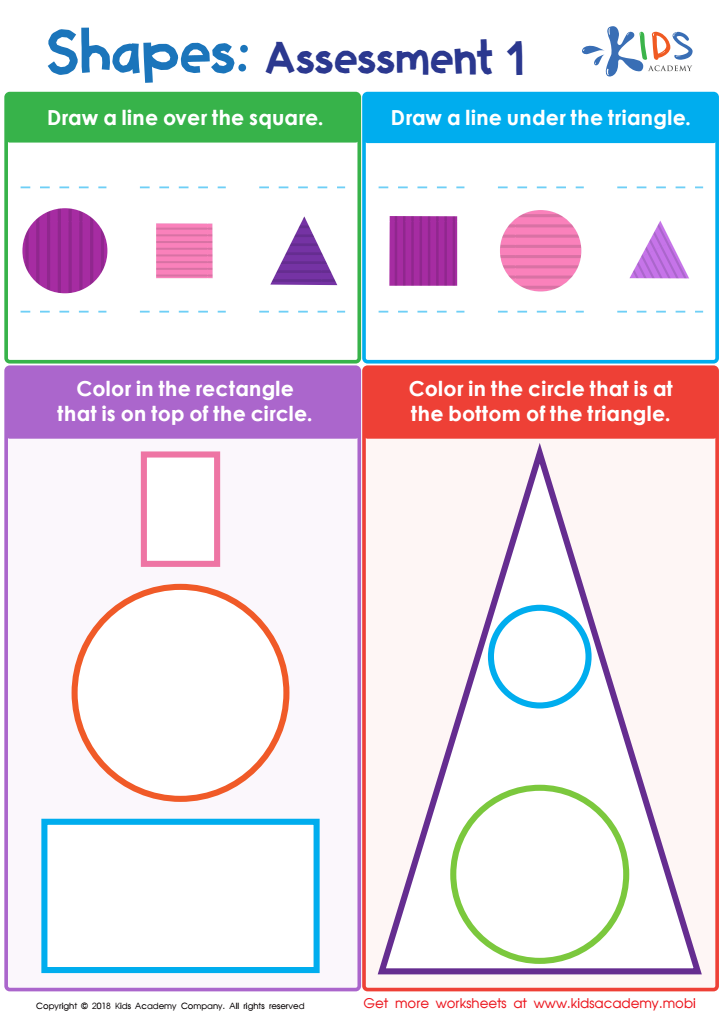

Shapes: Assessment 1 Worksheet
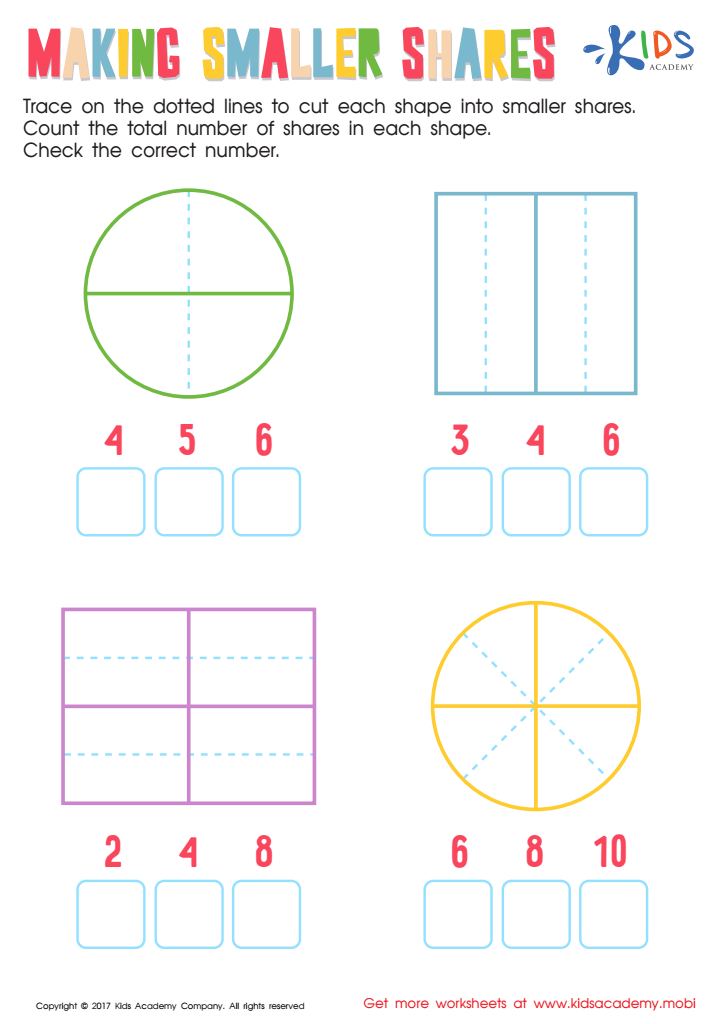

Making Smaller Shares Worksheet
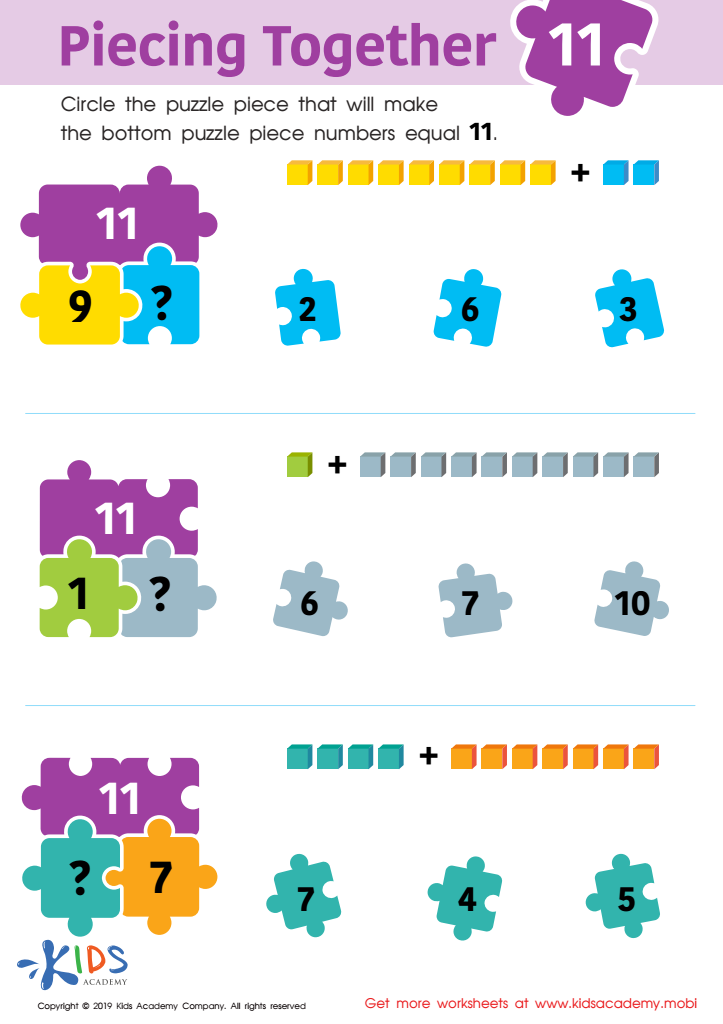

Piecing Together 11 Worksheet
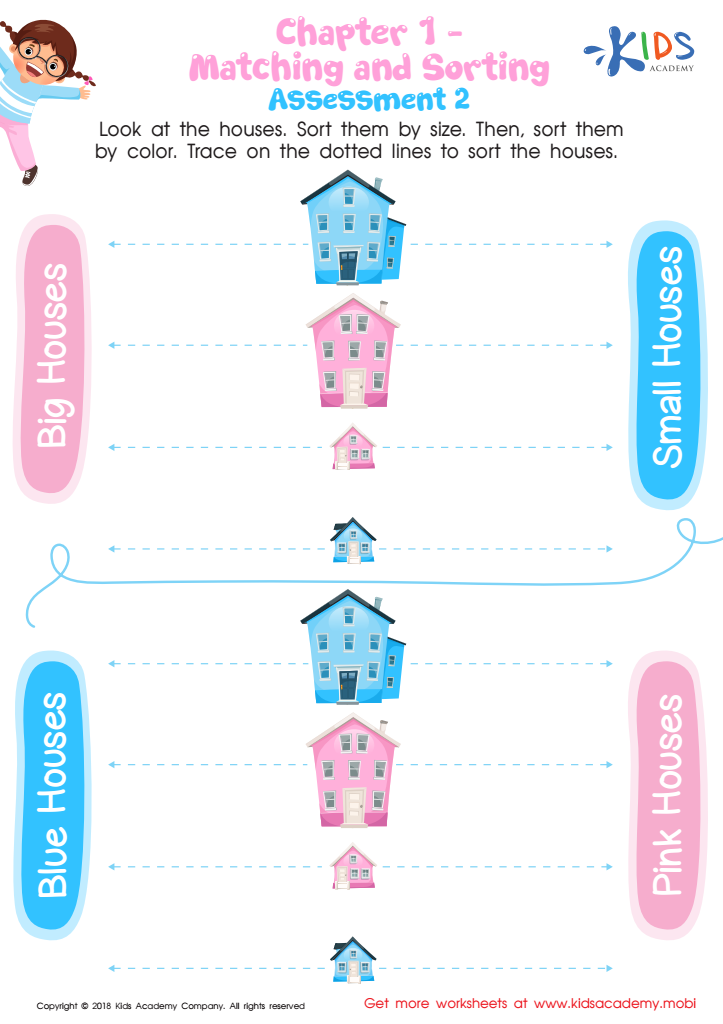

Matching and Sorting for Preschool: Assessment 2 Worksheet
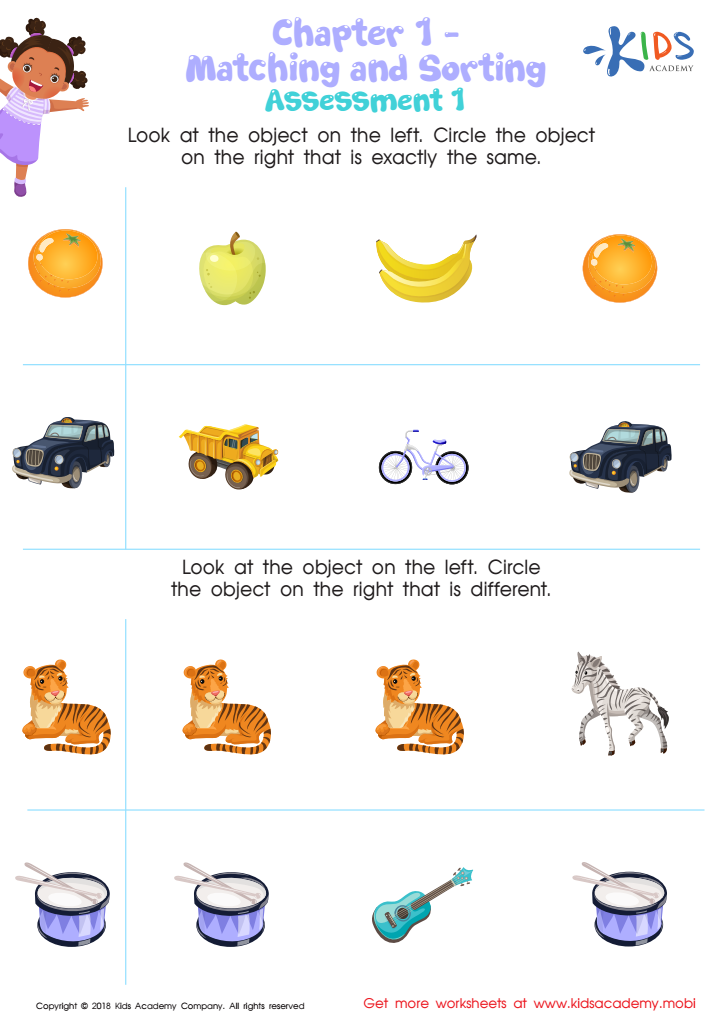

Matching and Sorting for Preschool: Assessment 1 Worksheet
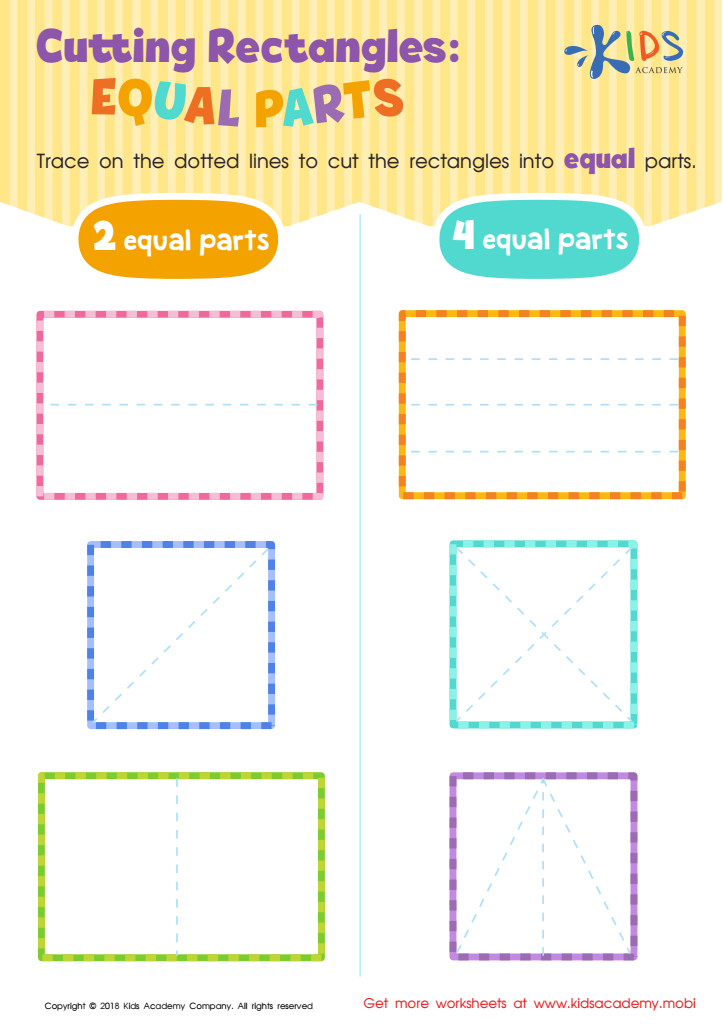

Cutting Rectangles: Equal Parts Worksheet
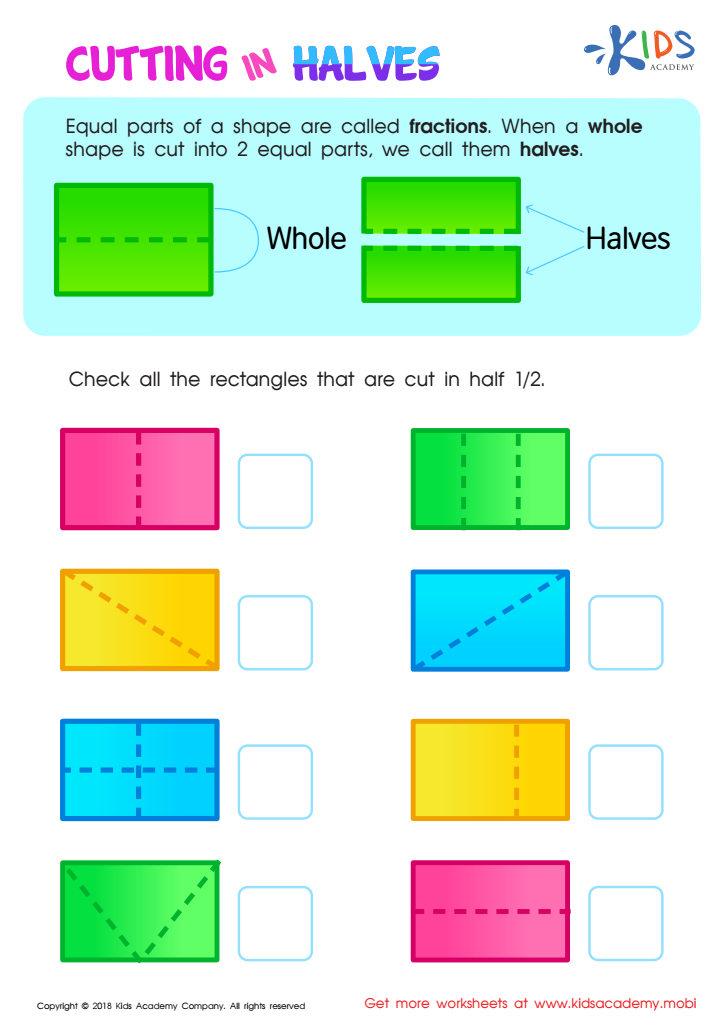

Cutting in Halves Worksheet
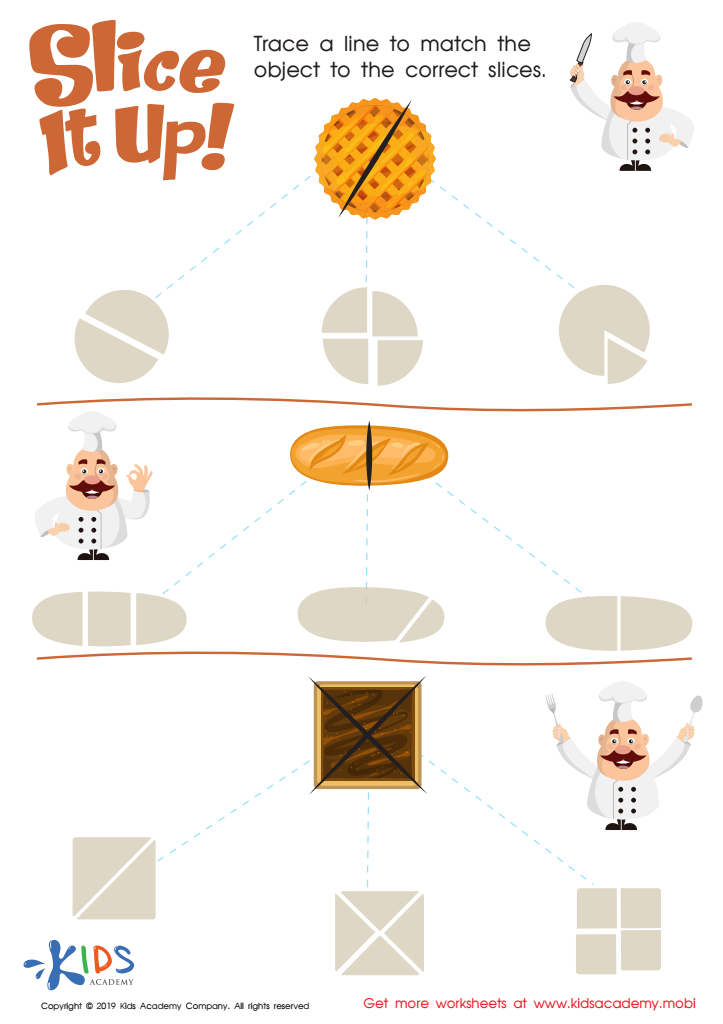

Slice It Up Worksheet
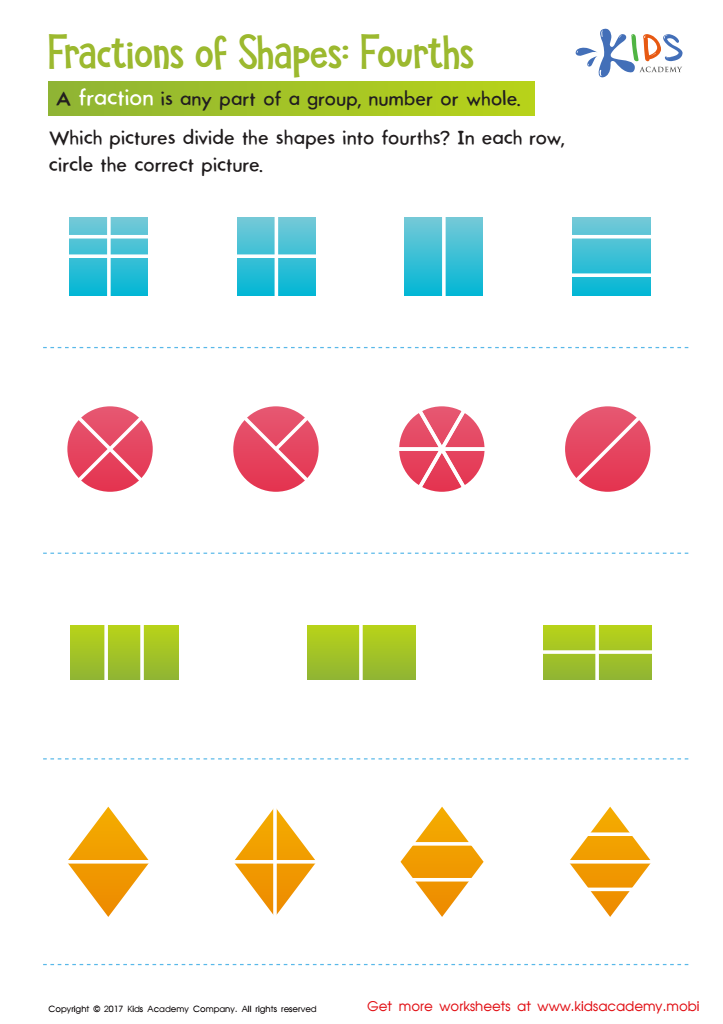

Fractions of Shapes Worksheet
Understanding fractions is fundamental in early math education, especially for children ages 5-6. At this developmental stage, children are naturally curious and capable of grasping basic concepts of division and sharing, which are foundational to understanding fractions.
Firstly, fractions help build critical thinking and problem-solving skills. When children learn to identify and work with fractions, they practice dividing whole objects into parts, which fosters a deeper understanding of the concepts of division and ratio. This prepares them for more advanced math topics later on.
Secondly, fractions are pervasive in everyday life. From cooking to telling time, and sharing equally among friends, grasping the basics of fractions helps children navigate the world around them more effectively. By building a strong foundation early, children can relate fragmented quantities to real-world situations, enhancing their practical life skills.
Lastly, introducing fractions early encourages a positive attitude toward math. Many children develop anxiety about math as they grow older. Engaging young learners with fun, hands-on activities involving fractions can make math feel less intimidating and more enjoyable. Therefore, by understanding fractions at an early age, children are likely to develop confidence and an interest in continuing their mathematical journey.
Parents and teachers should see early fraction education as an investment in a child's cognitive development and life skills, making it an essential component of early childhood education.
 Assign to My Students
Assign to My Students


















